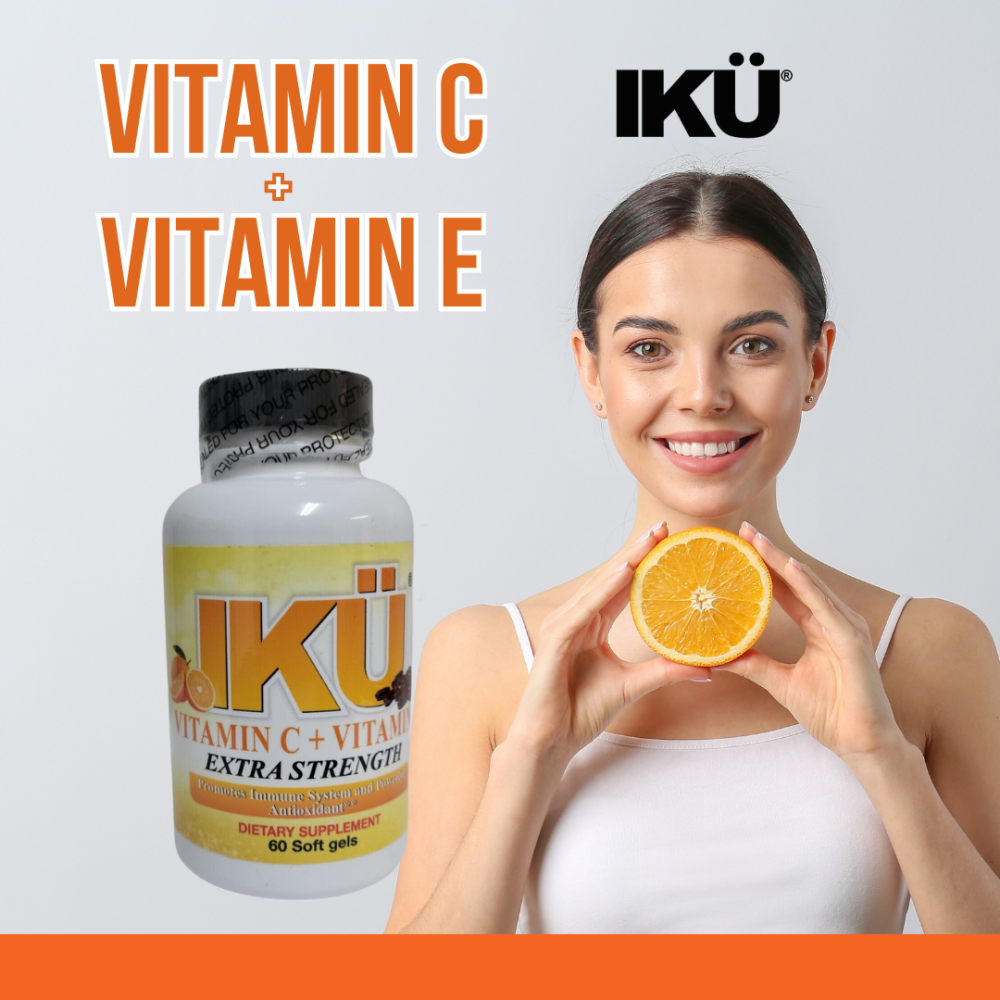The Immunity Booster: Exploring the Benefits of Vitamin C
When it comes to vitamins that are both widely known and cherished for their health benefits, Vitamin C takes center stage. This essential nutrient is renowned for its role in supporting the immune system, but its benefits extend far beyond that. In this blog post, we’ll dive into the world of Vitamin C, exploring its functions, sources, and why it’s a vital component of a healthy lifestyle.

Understanding Vitamin C
1. The Antioxidant Powerhouse
Vitamin C, also known as ascorbic acid, is a water-soluble vitamin that serves as a powerful antioxidant in the body. Antioxidants protect our cells from damage caused by harmful molecules called free radicals, which are associated with aging, chronic diseases, and certain cancers.
2. Immune System Support
Vitamin C is perhaps most famous for its role in supporting the immune system. It helps stimulate the production and function of white blood cells, which are essential for fighting off infections and illnesses. Regular intake of Vitamin C is associated with a reduced duration and severity of colds and other respiratory infections.
3. Collagen Production
Collagen is a protein that plays a critical role in maintaining the health and integrity of skin, bones, and connective tissues. Vitamin C is essential for the synthesis of collagen, making it a key player in wound healing, tissue repair, and skin health.
4. Antioxidant Defense
As an antioxidant, Vitamin C helps protect cells from oxidative stress and damage caused by free radicals. This protection extends to other antioxidants in the body, such as Vitamin E. By regenerating oxidized Vitamin E, Vitamin C helps maintain a robust antioxidant defense system.
5. Iron Absorption
Vitamin C enhances the absorption of non-heme iron (the type of iron found in plant-based foods) from the digestive tract. This is particularly beneficial for individuals who follow vegetarian or vegan diets, as it helps improve iron availability and prevent iron-deficiency anemia.
Sources of Vitamin C
1. Citrus Fruits
Oranges, grapefruits, lemons, and limes are well-known sources of Vitamin C. Enjoying a variety of citrus fruits can provide a significant portion of your daily Vitamin C intake.
2. Berries
Strawberries, blueberries, raspberries, and blackberries are not only delicious but also rich in Vitamin C. They can be easily incorporated into smoothies, yogurt, or enjoyed as a snack.
3. Bell Peppers
Red, yellow, and green bell peppers are excellent sources of Vitamin C. They can be added to salads, stir-fries, or enjoyed as crunchy snacks.
4. Leafy Greens
Kale, spinach, and other leafy greens contain Vitamin C along with a host of other nutrients. Incorporate these greens into your salads, soups, and meals.
5. Supplements
If you struggle to meet your Vitamin C needs through dietary sources alone, supplements are an option. Vitamin C supplements come in various forms, including tablets, capsules, and powdered forms.
Conclusion
Vitamin C is a true nutritional superstar, offering a wide range of benefits for overall health and well-being. Its role in immune support, antioxidant defense, collagen production, and more makes it an essential part of a balanced diet. Whether you choose to obtain Vitamin C from natural food sources or supplements, incorporating it into your routine is a proactive step toward nurturing your health. As always, consult with a healthcare professional before introducing new supplements into your regimen, especially if you have specific health concerns or conditions. Embrace the power of Vitamin C and embark on a journey to vibrant health and wellness.
